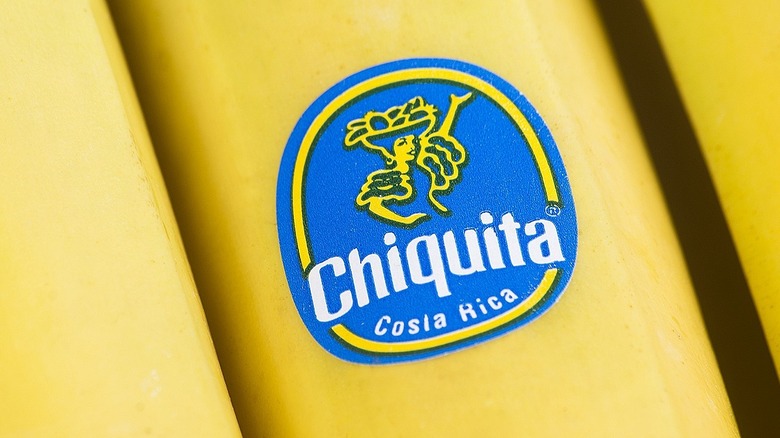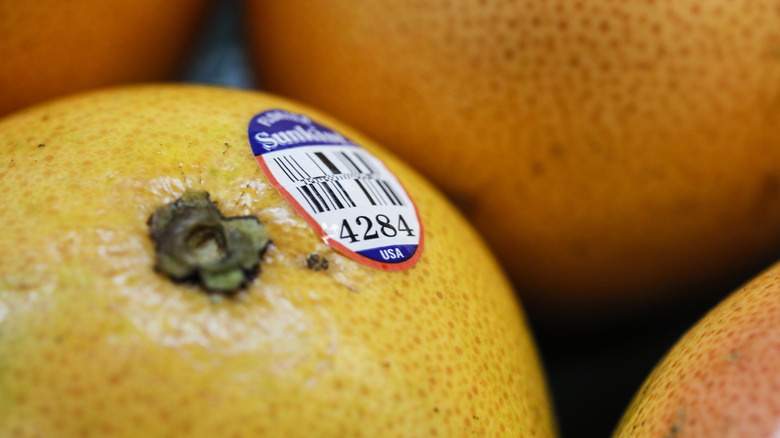Is Eating The Sticker On Fruit Bad For You?
To the grocery world, the stickers found on produce are known as PLUs or "price lookup" codes, and they're meant to help cashiers keep track of fruits and vegetables that are sold in-store. While these stickers are designed to stand out against the backdrop of your brightly-colored selections, people have actually been known to accidentally eat them.
If you're feeling sheepish about the fact that you've accidentally swallowed one, you'll be happy to know these stickers can be consumed, since their use is governed by FDA guidelines — in fact, they're made with an edible paper and tacked on with edible glue (via EcoEnclose). As the Food and Drug Administration explained to the The New York Times in an e-mail, "Produce stickers have contact with food, [and] the intended use of these stickers is the subject of premarket approval by the Food and Drug Administration, to ensure that any substances that may migrate to food from the use of the sticker is safe." So there's no need to freak out the next time you eat one — though you don't want to make a habit of it!
Produce stickers won't harm you but here's why you don't want to eat them willingly
But, just because you can eat produce stickers, doesn't mean you should. Doing so means you'd still be eating something made with a plastic material and paper — even though that material is pretty close to chewing gum. And while they can be consumed, EcoEnclose points out that these stickers aren't strictly "edible," so they really shouldn't be eaten regularly. The FDA points out that, "As these stickers are intended to be removed before consumption of produce, the FDA's review does not include the exposure that would result from regular consumption of these labels. However, as these substances are of low toxicity, any exposure from the occasional, unintentional consumption of a sticker would not be expected to be a health concern" (via The New York Times).
Ironically, eating produce stickers accidentally may be better for the environment in the long run, however, because they aren't biodegradable, so when they are left on produce skins they could contaminate compost, becoming yet another source of micro-plastics. Developers are now trying to find ways to make PLUs that dissolve while the fruit is being cleaned, or to mark the fruit with lasers that can brand produce in a way that doesn't hurt the way it tastes or provide harm to humans or the environment. Until that happens, though, the best place for PLUs is in the bin with other un-recycled trash.

